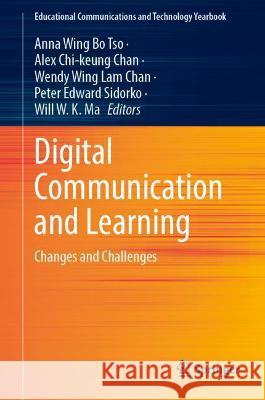Digital Communication and Learning: Changes and Challenges » książka
topmenu
Digital Communication and Learning: Changes and Challenges
ISBN-13: 9789811683282 / Angielski / Twarda / 2022 / 418 str.
Digital Communication and Learning: Changes and Challenges
ISBN-13: 9789811683282 / Angielski / Twarda / 2022 / 418 str.
cena 603,81
(netto: 575,06 VAT: 5%)
Najniższa cena z 30 dni: 578,30
(netto: 575,06 VAT: 5%)
Najniższa cena z 30 dni: 578,30
Termin realizacji zamówienia:
ok. 16-18 dni roboczych.
ok. 16-18 dni roboczych.
Darmowa dostawa!
Kategorie:
Kategorie BISAC:
Wydawca:
Springer
Język:
Angielski
ISBN-13:
9789811683282
Rok wydania:
2022
Ilość stron:
418
Waga:
0.75 kg
Wymiary:
23.39 x 15.6 x 2.39
Oprawa:
Twarda
Wolumenów:
01
Dodatkowe informacje:
Wydanie ilustrowane











